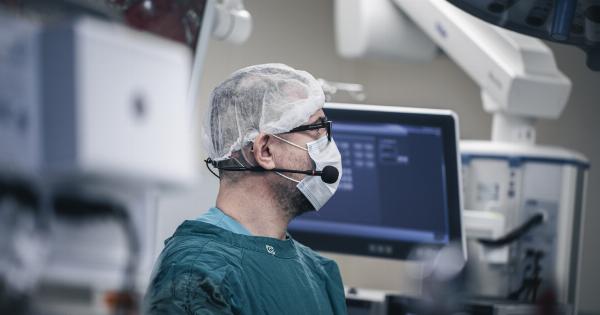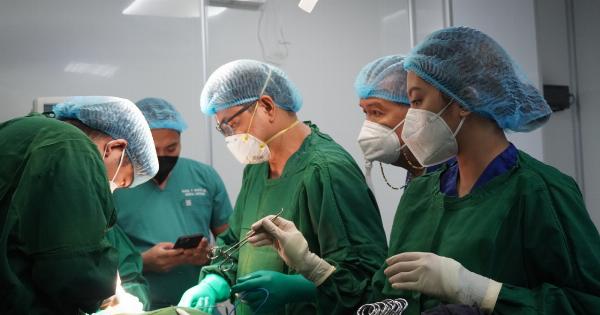Abdominal wall hernias occur when there is a weak spot or tear in the muscles of the abdominal wall, allowing organs or fatty tissue to protrude through.
While hernias are relatively common and usually not life-threatening, they can cause discomfort and possibly lead to complications if left untreated. Therefore, it is essential to choose the right time for abdominal wall hernia treatment.
Types of Abdominal Wall Hernias
There are several types of abdominal wall hernias, including:.
- Inguinal Hernia: This is the most common type of abdominal wall hernia, occurring in the inguinal region (groin area).
- Umbilical Hernia: This hernia appears around the belly button or navel.
- Incisional Hernia: It occurs when a previous surgical incision weakens and allows the abdominal contents to protrude.
- Femoral Hernia: This type of hernia appears in the upper thigh or groin region.
Symptoms of Abdominal Wall Hernias
The symptoms of abdominal wall hernias can vary depending on the size and location of the hernia. Common symptoms include:.
- Pain or discomfort at the hernia site
- A visible bulge or lump
- Feeling of pressure or heaviness
- Burning or tingling sensation
- Nausea or vomiting (in some cases)
Initial Treatment Approaches
When a hernia is diagnosed, the initial approach is usually non-surgical and involves lifestyle modifications and the use of supportive measures such as:.
- Wearing a supportive belt or truss
- Reducing physical activities that strain the abdominal muscles
- Avoiding heavy lifting
- Maintaining a healthy weight to reduce strain on the abdomen
When to Consider Surgery
While non-surgical approaches may alleviate some symptoms, they cannot repair the hernia. Surgery is often the only definitive treatment option for abdominal wall hernias. However, it is important to choose the right time to undergo surgery.
Some factors to consider include:.
Size and Progression of the Hernia
The size of the hernia is an important factor in determining when to undergo surgery. Smaller hernias may be less symptomatic and may not require immediate surgery.
However, larger hernias are more likely to cause discomfort and complications, indicating the need for surgical intervention. Additionally, if the hernia is rapidly growing or causing significant pain, surgery may be necessary.
Persistent Symptoms
If the symptoms of a hernia persist despite non-surgical measures, it may be an indication that surgery is necessary.
Chronic pain, frequent discomfort, or interference with daily activities can significantly impact a person’s quality of life and should be evaluated for surgical repair.
Risk of Incarceration or Strangulation
One of the most critical factors in choosing the right time for hernia treatment is the risk of complications such as incarceration or strangulation.
In some cases, hernias can become trapped or constricted, leading to a loss of blood supply to the trapped tissue. This can be a medical emergency requiring immediate surgical intervention. If a hernia becomes incarcerated (unable to be pushed back in), or if there are signs of bowel obstruction, surgery should be performed promptly.
Overall Health and Age
A person’s overall health and age should also influence the timing of hernia treatment. Surgery may be riskier for individuals who have underlying health conditions or who are elderly.
Therefore, it is crucial to identify the optimal time when the patient’s health condition is stable and the risks of surgery are minimized.
Expert Medical Advice
Ultimately, the decision of when to undergo hernia treatment should be made in consultation with a healthcare professional.
They can assess the specific circumstances of the hernia, consider the individual’s health status, and provide personalized recommendations regarding timing and surgical intervention.
Conclusion
Abdominal wall hernias can cause discomfort and potential complications if left untreated.
Choosing the right time for hernia treatment involves considering factors such as hernia size and progression, persistent symptoms, the risk of incarceration or strangulation, and the individual’s overall health and age. Seeking expert medical advice is crucial to make an informed decision about the optimal timing for hernia repair.



























